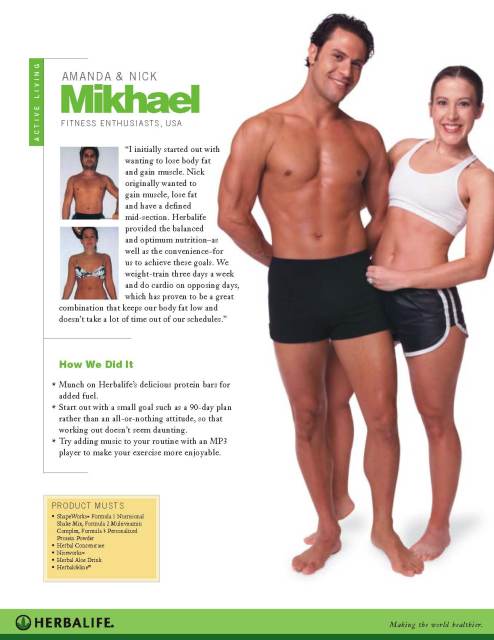Becoming Registered Dietician
Question
Hello,
I actually have a question concerning becoming a Registered Dietician. My son is graduating from high school and is really interested in this field. I have concerns because getting the degree isn't cheap( we live in Philadelphia area and the schools that have it are all private colleges ) and than I'm told it is difficult to get an internship ..very competitive., and from what I've seen salary isn't that great??? Any thoughts would really be appreciated.
Thanks,
Marianne
Hi Marianne,
You came to the right expert!
I have been a registered dietitian for over 30 years and I can tell you all about the options for education as well as career. I'm currently working at Keiser University in Port St. Lucie, FL as the clinical coordinator for the dietetic interns!
For starters, the student needs to get a 4-year degree in an accredited didactic (classroom) program, and then a 9-12 month internship. Yes, they are getting very, very competitive and furthermore there is no option to work for income while you are in the internship.
There are 2 better ways to do this: One is called a Coordinated Dietetic Program. These types of programs include the internship in the 4th year of college. Once the student gets into the program (sophomore or junior year) you're in. There is at least one program in just about every state. Here's a list from the EatRight.org site, the site of the Academy of Nutrition and Dietetics.
http://www.eatrightacend.org/ACEND/content.aspx?id=6442485421
Another good way is to go through the 4-year classroom (didactic) program in dietetics from an accredited university (eatright.org has these listed and there are several in every state) and then apply for a program that has a combined masters degree + internship.
No, none of these are cheap. But neither is any college degree these days. The difference is, with a degree in dietetics--and passing the registration exam--you are pretty much guaranteed a job!
Look up jobs on CareerBuilder or Indeed or NutritionJobs.com and see the options for dietitians.
You can work in a hospital, a school, a nursing home or a dialysis center. There are dietitians who work for sports teams or run a food service department or work in gyms and help train people for athletic events. I have worked for hospice patients, doctors' offices and home health agencies. You can teach or do research or work with the USDA or with a little luck, land a TV show like "Honey we're killing the kids" or The Biggest Loser. I have a friend who is the dietitian for Arby's. I've worked for a company called Ecosure that does chain restaurant inspections to prepare the managers for the health department inspection and assure that all the chains are keeping up the good brand name and reputation. I worked at Thomas Jefferson University hospital in Philadelphia in the trauma unit--a very unique and exciting place to be. And I taught nutrition to nurses at Jefferson Medical College. I have a friend who works for a drug company selling nutritional supplements to major medical centers and one who works with oncology (cancer) outpatients. Nestle has a dietitian who works for them and so do most of the major food service companies--dietitians can affect what is on food labels or work in food science developing products... like making gluten-free foods taste better. I have dietitian friends who work for Medifast weight loss at a senior level, helping to train people across the country to help run a weight-loss clinic in their area. There are dietitians who write books, make money doing public speaking, work for large corporations to assure employee wellness in order to keep insurance costs and sick-day loss of productivity low.
The bottom line is, everybody eats! And everybody always will. And eating certain ways can help people become and stay healthy (or fit or at a healthy weight) and avoiding certain components are necessary for the health of people with just about any illness (diabetes, heart disease, kidney disease, gastrointestinal distress, cancers, etc).
If it's a field your son is interested in, I would definitely encourage him to go there. College is expensive, but getting a degree in "business" or "management" or "chemistry" leaves one too open to find a job easily. Once you have the RD credential you can go just about anywhere in the country and find a job. I decided to move to Florida (twice) and -bang- found a job before I got there. I moved with my military husband to St. Louis and -boom- found a job in a community hospital at first, at a university in time, and then the ecosure inspection job.
Some of these jobs pay poorly--if you go into public health and work for WIC, helping underprivileged and ill pregnant women get food assistance for themselves and their young children, you might be looking at $28,000 a year. If you are a food-service director, food researcher, sports team dietitian it's probably closer to $80,000. If you start your own business and help individuals lose weight (see my website at http://www.mycoachlaurie.com) or train for sports, or write a book, the sky is the limit.
Let me know what other questions or concerns you have. If you want to set up a time for a phone call I would be very happy to answer your questions... and your son's!
Laurie
- Prev:dinner issues
- Next:Changing his ways
Related Articles
-
eating disorder weight gain
QuestionHi Laurie, I am so glad I found this site; I am hoping y
-
Dozes of Vitamin B6 and B12 for brain health
QuestionCould you please tell me the minimum daily requirement of
-
Surgical Nutrition
QuestionMs. Beebe, I am a 27 year old vegetarian male who weighe
-
tuna
QuestionIs it possible to eat too much canned tuna? Solid w
-
Worried
QuestionI am always a great believer that people should be extrem
-
Overweight
QuestionIs there a word for overweight that means overfat? Whenev




